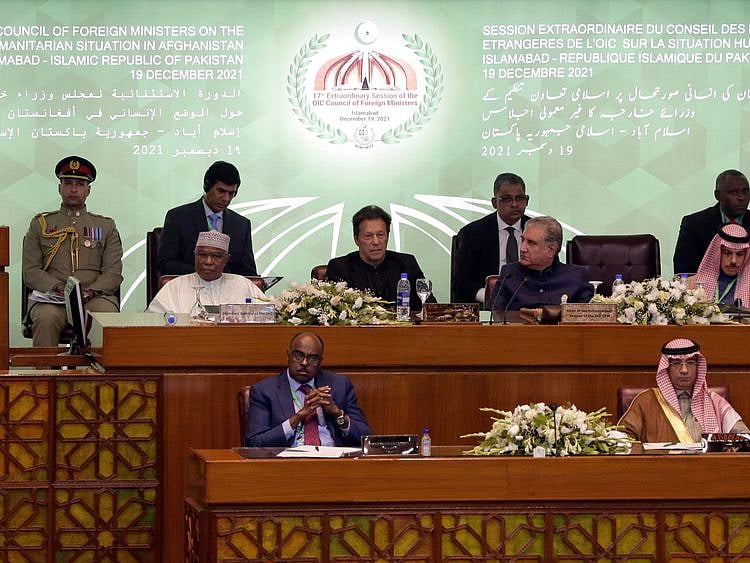OIC meet puts spotlight back on Afghanistan
Country on the brink of the world’s worst humanitarian emergency

Yesterday’s Organisation of Islamic Cooperation’s (OIC) meeting in Islamabad has put the spotlight back on humanitarian crisis in Afghanistan.
Turning the world’s attention to the people of the war-ravaged country, who are a grave risk of starvation and disease, foreign ministers and dignitaries from the 57-member OIC deliberated on ways to aid Kabul while navigating the political realities of its Taliban-run government.
The gathering of the biggest Islamic bloc aims to find lasting solution to the crises faced by ordinary Afghans.
The OIC joint resolution, issued after the meeting, said it will play a leading role in the urgent delivery of humanitarian and development aid to the Afghan people who are facing extreme hunger and poverty.
With fears that the global apathy and lack of attention would lead to further food shortages for more than 22 million people and affect about 3.2 million children with malnutrition, there have been calls for urgent need to find solutions to the unfolding humanitarian crisis.
The OIC meeting also gives the world a much-needed reality check of the ground realities in Afghanistan. Besides the foreign ministers from the OIC member states and observers, participants included special invitees from the United Nations, international financial institutions and non-member states including the US, UK, France, China, Russia, Germany, Italy and Japan.
The meeting is the biggest major conference on Afghanistan since the US-backed Kabul government fell in August this year and the Taliban returned to power. Since then, US froze billions of dollars in aid and assets — money that Kabul desperately wants.
Impending refugee crisis
Given the dire situation, Afghanistan’s immediate neighbours like Pakistan may also have to gear up for an influx of refugees. UNHCR, the UN Refugee Agency, has already issued an appeal for much more support amid massive humanitarian needs for millions displaced — including 700,000 displaced in 2021.
Currently Afghanistan appears on the brink of the world’s worst humanitarian emergency with a combined food, fuel and cash crisis.
A large per cent of the Afghan population lacks proper shelter, warm clothes, sufficient fuel for heating, and adequate amounts of food and medical supplies as a harsh winter sets in and temperatures dip below freezing in large parts of the country.
Even as the OIC addresses the looming humanitarian crisis, the first priority should be reversing the rapidly deteriorating humanitarian situation in Afghanistan, especially in terms of food shortages, displacement of people and a potential economic collapse.
The Taliban, on their part, must fulfil the commitments they had made to the international community, which includes ensuring women’s rights.
Sign up for the Daily Briefing
Get the latest news and updates straight to your inbox
Network Links
GN StoreDownload our app
© Al Nisr Publishing LLC 2026. All rights reserved.